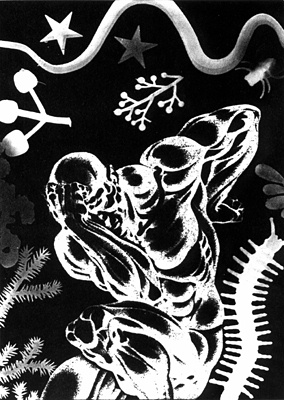All Nonfiction
- Bullying
- Books
- Academic
- Author Interviews
- Celebrity interviews
- College Articles
- College Essays
- Educator of the Year
- Heroes
- Interviews
- Memoir
- Personal Experience
- Sports
- Travel & Culture
All Opinions
- Bullying
- Current Events / Politics
- Discrimination
- Drugs / Alcohol / Smoking
- Entertainment / Celebrities
- Environment
- Love / Relationships
- Movies / Music / TV
- Pop Culture / Trends
- School / College
- Social Issues / Civics
- Spirituality / Religion
- Sports / Hobbies
All Hot Topics
- Bullying
- Community Service
- Environment
- Health
- Letters to the Editor
- Pride & Prejudice
- What Matters
- Back
Summer Guide
- Program Links
- Program Reviews
- Back
College Guide
- College Links
- College Reviews
- College Essays
- College Articles
- Back
Religious and Political Perception and Generalization
It’s obvious that we have already created stereotypes about religion and politics, the first things that comes up when you type into google “Why are r” is ‘why are republicans so stupid?’ This is because extremism dictates our view on people of different denominations of life.
As an example, we could use the fairly current issue of laws against rape. Many people have heard the Richard Mourdock quote, “I think even when life begins in that horrible situation of rape, that it is something that God intended to happen.” Richard Mourdock is the Indiana Treasurer and and identifies himself as Evangelical Christian. This is demographically not surprising seeing as 74 percent of Republicans identify themselves as Caucasian Christians and a very large percent consider themselves as evangelical, which is why we consider conservative republicans to be conservative Christians, and eventually in our eyes that becomes “republicans are conservative christians,” and then “conservative Christians say rape is the will of God.” From there, the conservative gets dropped and suddenly you are hearing the statement “all republicans are Christians; all Christians believe rape is God intended.” This is completely untrue, and exaggerated.
Interestingly, 24 percent of Republicans do not identify as Christian. Though a hefty majority of republicans do identify as such, not all of them do. Second of all, studies have shown that nearly 85 percent of Republicans believe that it rape victims should be able to have abortions (Barrick). Therefore we can see that the percentage of people who disagree is higher than the amount of Republicans that identify as Christian, so it is mathematically impossible judging from the information that all Republicans are Christian and that all Republicans or all Christians agree with Mourdock’s statement. “I strongly disagree with the statement made by Richard Mourdock... I urge him to apologize,” stated Mike Pence, Christian, Republican, and Governor of Indiana.
Another example that you may be very familiar with is the issue of The Taliban and Islamophobia. When the Taliban caused the disaster on September 11th, 2001, many Americans raised prejudice against people of the Islamic religion. Haroon Moghul described Islamophobia as “A closed mind is a terrible thing to behold,” and “Anything but rational, fair, or grounded.” He also asks, “why do we have to put up with absurdly ahistorical arguments?” And he wonders why he has to put up with accusations of his religion that are “fanciful, hyperbolic, and almost endearingly fictitious.”
The proof that Islam, by standards of statistics , is not dangerous is enormous. In 2010, the Taliban was estimated to be about 36,000 strong, while the Islamic population of the world was estimated at 1.62 billion. This means that the Taliban make up about 2.8% of the Islamic population. Yet 43 % of Americans admit to having some form of Islamophobia, nearly 50 percent look down on Muslims, 58 percent said that they thought there were more violent extremists in the Islamic religion than in other religions, and 44 percent said that they had less trust in American-Arabs than in other Americans. This represents how we as humans in the modern world let people we hear about more dictate what we think of the people in the same denominations.
But why is this the case? This is the case because of political and religious extremism. We stereotype people by what we see, hear about, and think about most. Why do we see these extremist ideas most? It is not because we see them most in real life. A large contributor to this problem is public media. “Christians are weirdos. At least, if you read the daily news, that’s likely the message you’ll get,” says Darren Hewer, author of the online faith blog Why Faith? This is true for lots of political and religious denominations in the media. Only the extreme cases make good stories that people will listen to, which causes the media to create and perpetuate stereotypes of extremism. We all know we are not going to read in the newspaper ‘Conservative white Christian male leads normal life’ or ‘Arab Islamic woman in police force’, because that wouldn’t be interesting, it wouldn’t be a story worth printing. So what we have to is make sure we know this, and keep our minds open. We as consumers of media must endeavor to remember that not all news represents people, and keep in mind that our generalizations may hurt others.

Similar Articles
JOIN THE DISCUSSION
This article has 0 comments.
